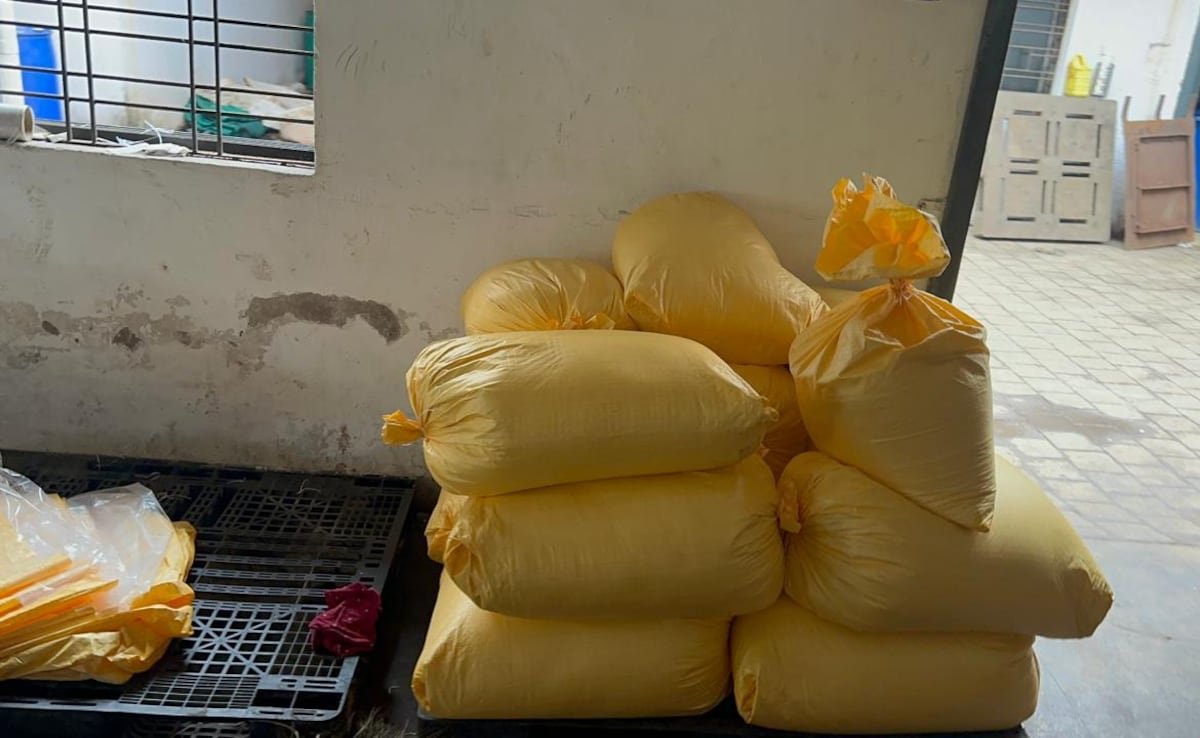
In recent months, the NCB has made progress in curbing Haji Salim’s drug shipments(Representational)
Haji Salim, known infamously as “Lord of Drugs,” has earned a notorious reputation as one of the most influential figures in global drug trafficking. Operating primarily from Pakistan, he leads an expansive criminal network responsible for smuggling large quantities of heroin, methamphetamine, and other illicit substances into India and beyond. The Narcotics Control Bureau (NCB) of India has launched significant operations to dismantle Salim’s empire, with “Operation Sagar Manthan” emerging as a key effort in the fight against his narcotics syndicate.
The Rise Of Haji Salim
Haji Salim‘s criminal activities came into the spotlight in 2015 when a major drug consignment linked to him was seized in Kerala. Over the years, authorities have traced numerous large-scale drug busts back to him, making his name synonymous with narcotics smuggling in India. He is also closely connected to the infamous fugitive gangster Dawood Ibrahim, as the two are said to be neighbours in Pakistan’s Balochistan province. Salim reportedly runs his operations with the support of Pakistan’s intelligence agency, ISI.
Operation Sagar Manthan
In response to the growing threat posed by Haji Salim’s cartel, the Indian government launched “Operation Sagar Manthan” earlier this year. The operation is a collaborative effort between the NCB, Indian Navy, Indian Coast Guard, and Gujarat Police’s Anti-Terrorism Squad (ATS). The primary objective is to disrupt maritime drug trafficking, which Salim heavily relies on. So far, the operation has led to the seizure of around 3,400 kg of narcotics, and multiple arrests, including citizens from Iran and Pakistan.
The operation focuses on intercepting shipments that are sent via sea routes, a method Salim has perfected. His drugs are often packed with code words like “777,” “555,” “999,” “scorpions” and “flying horse” to avoid detection. The consignments typically start from Iran, pass through countries like Malaysia, Afghanistan, and Sri Lanka, and are finally delivered to coastal cities in India, such as Gujarat and Kerala.
“Raktbeej”: Haji Salim’s Code
Salim’s cartel is so powerful that he has been named “Raktbeej” (meaning “the seed of blood”) in reference to his dominance in drug trafficking in India. He is responsible for about 70 per cent of the drug smuggling across India’s seas. His syndicate operates globally, with links to countries such as Mauritius, Sri Lanka, New Zealand, America, and even Afghanistan. Salim uses unemployed youth from Balochistan as his foot soldiers, drawing them into the drug trade.
Despite his wide-reaching operations, very little is known about Salim personally. Authorities only have an old photograph of him, and details about his life remain scarce. His network is believed to be bolstered by the ISI, which helps him ensure that his operations remain secure and undisturbed by international law enforcement.
High-Profile Arrests
In recent months, the NCB has made significant progress in curbing Salim’s narcotics shipments. The operation, “Sagar Manthan-4,” resulted in the seizure of 700 kg of methamphetamine off the Gujarat coast. The authorities had received intelligence about an unregistered ship carrying drugs, and once it entered Indian waters, the NCB, Navy, and ATS launched a coordinated operation to intercept it. During this bust, eight foreign nationals, believed to be Iranians, were arrested.
Authorities have also made arrests of Pakistani nationals linked to Salim’s drug pipeline. Salim’s operation stretches far beyond India’s borders, with his syndicate’s reach affecting countries across Asia, Africa, and Western nations.
The NCB remains committed to dismantling Haji Salim’s narcotics empire. With continued intelligence-sharing and coordination between international law enforcement agencies, efforts to break the syndicate are expected to intensify.
